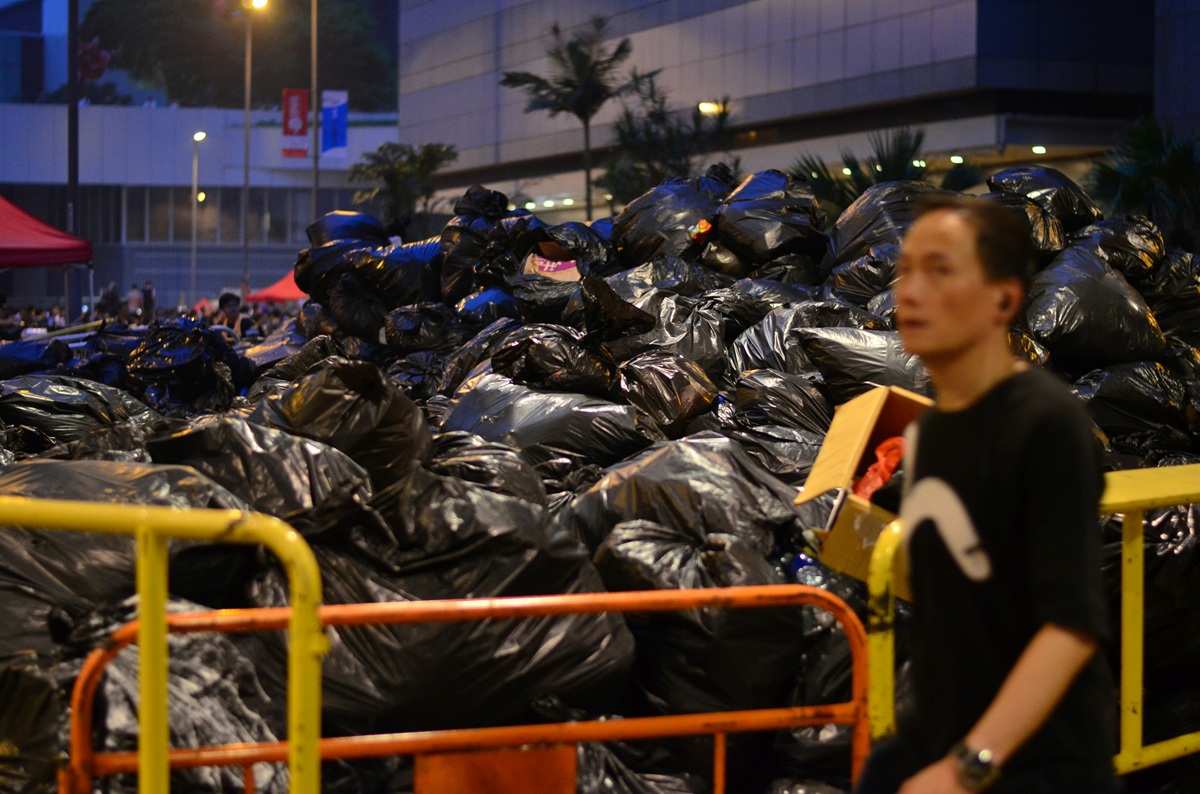Trade wars: Kuala Lumpur says no to United States' waste
On 1 July, a ban came into force on countries that are not signatories to the Basel Convention, the international treaty against the transport of hazardous waste, including plastic. In 2024, 35,000 tonnes of rubbish arrived in Malaysia from the US, now in search of a new destination. China had already closed its ports in 2018, shifting this lucrative but dangerous trade to Southeast Asia. Vietnam, Laos and Cambodia still have less stringent regulations.
Milan (AsiaNews/Agencies) - Malaysia no longer wants to be the ‘world's rubbish bin’. It also wants to play this card in the big game on tariffs opened by Donald Trump. From 1 July, Kuala Lumpur will no longer accept plastic waste from the United States; 35,000 tonnes (i.e. 35 million kg) of US waste sent to Malaysia last year will therefore have to find a new destination.
The United States, the European Union, Japan and most advanced economies in general send a large part of their waste abroad: global exports are estimated to have reached around 4 million tonnes in 2023. Of this, a large proportion, more than 400,000 tonnes, ended up in Malaysia.
The new law, which came into force on 1 July, now bans the import of waste from countries that have not ratified the Basel Convention, the international treaty aimed at reducing the international transport of hazardous waste, including plastic.
The United States is one of the few countries (along with Fiji and Haiti) that has not signed the agreement, but even signatory countries are not entirely exempt from these restrictions.
The Malaysian law stipulates that only waste that is actually recyclable, that is containing only one type of plastic with a maximum of 2% contamination, will be accepted. This effectively excludes most waste, even from countries that are party to the convention.
Kuala Lumpur's decision came after the seizure of hundreds of containers shipped from Los Angeles: they were supposed to contain raw materials, but were instead full of hazardous electronic and plastic waste.
The “waste trade” began in the 1960s when, following protests by environmental movements, the United States and Europe decided to raise the cost of disposing of certain substances, including asbestos, in the hope of reducing waste production.
However, in order to save money, companies sought alternative methods and began shipping waste abroad. Recycling policies then shifted part of the responsibility onto consumers: much plastic waste was able to circumvent the Basel Convention because it was classified as “recyclable material” and was accepted by countries often unaware of the risks.
For twenty years, half of the plastic thrown into recycling bins around the world ended up in China. In 2018, however, Beijing, realising the risks it was facing, withdrew from the waste trade.
Since then, several countries in Southeast Asia have seen a dramatic increase in waste imports: in Thailand, they peaked at 300,000 tonnes, while in Malaysia they rose from 200,000 to 800,000 tonnes, before falling to around 400,000 following initial government restrictions.
As with any form of trade, there is an advantage for both sides: the exporting country gets rid of the disposal problem, while the importing country hopes to recycle and resell the material to multinationals or exploit it in other ways. In Indonesia, for example, contaminated plastic is used as an alternative fuel in tofu factories.
Plastic is indeed a lucrative industry: in 2019, it is estimated to have generated nearly €33 billion in revenue, but the environmental and health costs seem to outweigh the benefits. Malaysia is not the first country to decide to pull out of this business. Earlier this year, both Thailand and Indonesia adopted similar measures.
The problem, as we saw in 2018, is figuring out where this waste will end up. There are fears that it will simply be diverted to other countries around the world, including Turkey and parts of Africa.
A significant portion of this waste will continue to arrive in Asia, particularly in countries with less stringent regulations, such as Vietnam, Laos and Cambodia. Coordinated international action is needed to reduce plastic production, consumption and pollution.
However, such a solution still seems a long way off, as demonstrated by the failure of the UN negotiations in Busan at the end of December, which aimed to finalise a legally binding global treaty to tackle the problem.
07/02/2019 17:28
11/08/2017 20:05







.png)










